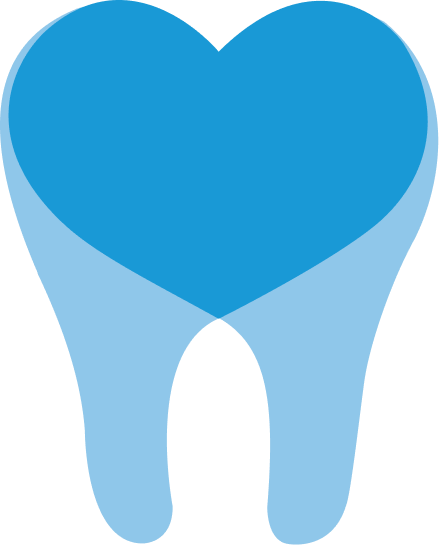Call: (630) 812-7929
Managing Dental Trauma: What To Do In Cases Of Fractured, Chipped, Or Cracked Teeth


Accidents happen, and when they involve your teeth, the experience can be both frightening and painful. Dental trauma requires immediate attention and proper care, whether a fractured, chipped, or cracked tooth. This guide will delve into the essential steps to take when faced with such emergencies. From understanding the nature of dental trauma to exploring why the expertise of an emergency dentist in Lombard is crucial, we aim to empower you with the knowledge needed to manage dental trauma effectively. Your oral health matters, and knowing what to do in critical moments can make a significant difference.
Types Of Dental Trauma
Fractured Teeth
Fractured teeth are a common dental emergency that requires prompt attention. The fracture can range from a small crack to a severe break involving the root. Fractures often occur from sudden trauma, like sports injuries, car accidents, and falls. They can also result from biting hard on hard foods or foreign objects like popsicle sticks or ice.
Symptoms include severe pain, swelling, bleeding, and visible broken pieces of the tooth. The tooth may become very loose or get knocked out completely with a severe fracture. Even small cracks that don’t hurt still require repair, as they can worsen over time and lead to infection or tooth loss.
If you experience a fractured tooth, rinse your mouth with warm water and apply a cold compress to reduce swelling. Save any broken tooth fragments. Seek emergency dental care right away. The dentist will examine the damage and determine the next steps. For severe breaks, minor fractures may be repaired with bonding, crowns, or extraction. Leaving fractures untreated risks additional chipping, infection, abscesses, and tooth loss, so prompt dental attention is critical.
Chipped Teeth
Chipped teeth occur when a small fragment breaks off the tooth enamel. Chips and cracks often result from biting into hard foods like ice or candy. Impact injuries and tooth grinding can also cause pieces to fracture. The location and size of the chip determine whether it’s painful.
Small cosmetic chips may not cause discomfort but should be evaluated as cracks worsen. Deeper fractures into dentin or pulp can trigger temperature and pressure sensitivity. Though not a full dental emergency, chipped teeth warrant prompt dental care to prevent further damage.
For a chipped tooth, rinse with warm water and apply light pressure with gauze if bleeding. Save any fractured pieces. Dental wax or sugar-free gum can protect sharp edges temporarily. See an emergency dentist promptly, even if there’s no pain.
Cracked Teeth
Cracked teeth result from chewing trauma that causes a split in the tooth down towards the root. The crack may or may not be visible externally. Deep cracks allow bacteria to seep in and irritate the pulp, causing pain when chewing or with temperature changes. However, small cracks occasionally do not trigger pain.
Non-painful cracks still require treatment, as they tend to worsen over time and can lead to infection of the root and bone loss. Visible symptoms of a cracked tooth include pain with biting, temperature sensitivity, earache, and possibly swelling. Hairline fractures are difficult to diagnose, often needing a dye test.
If you suspect a cracked tooth, rinse with warm water and apply an ice pack to reduce swelling. Avoid chewing on the affected side. Cracked teeth are a dental urgency. Even if pain is minimal, see an emergency dentist within 1-2 days. The dentist will determine the crack’s location and extent using advanced imaging and testing.
Emergency Dentist Lombard: Why Choose Prompt Care?
- Immediate Assessment: Emergency dentists understand the urgency of dental trauma cases and provide prompt assessments to determine the extent of the damage.
- Specialized Expertise: Dealing with dental emergencies requires specialized knowledge and expertise. Emergency dentists are trained to handle many urgent dental issues, ensuring you receive the best possible care.
- Preventive Measures: Emergency dentists address the immediate issue and implement preventive measures to avoid further complications. This proactive approach is essential for long-term dental health.
- Comprehensive Solutions: Whether it’s a fractured, chipped, or cracked tooth, an emergency dentist in Lombard will offer comprehensive solutions tailored to your needs. This may include restorative procedures, such as dental bonding, crowns, or even extractions if necessary.
Dental injuries like fractures, chips, and cracks can happen unexpectedly, and knowing how to respond quickly is key to preventing further damage. While all these trauma types require prompt dental attention, small at-home steps like rinsing, applying cold compresses, and avoiding chewing on the injured tooth can provide relief until you can be seen. Save any detached tooth pieces and seek emergency dental care within hours or days, depending on severity. With rapid assessment and treatment, dentists can often save injured teeth through restorations. Leaving dental trauma untreated risks complications like infections, abscesses, and eventual tooth loss. Stay vigilant about dental injuries, act quickly, and partner with your dentist to protect the health of your smile.





